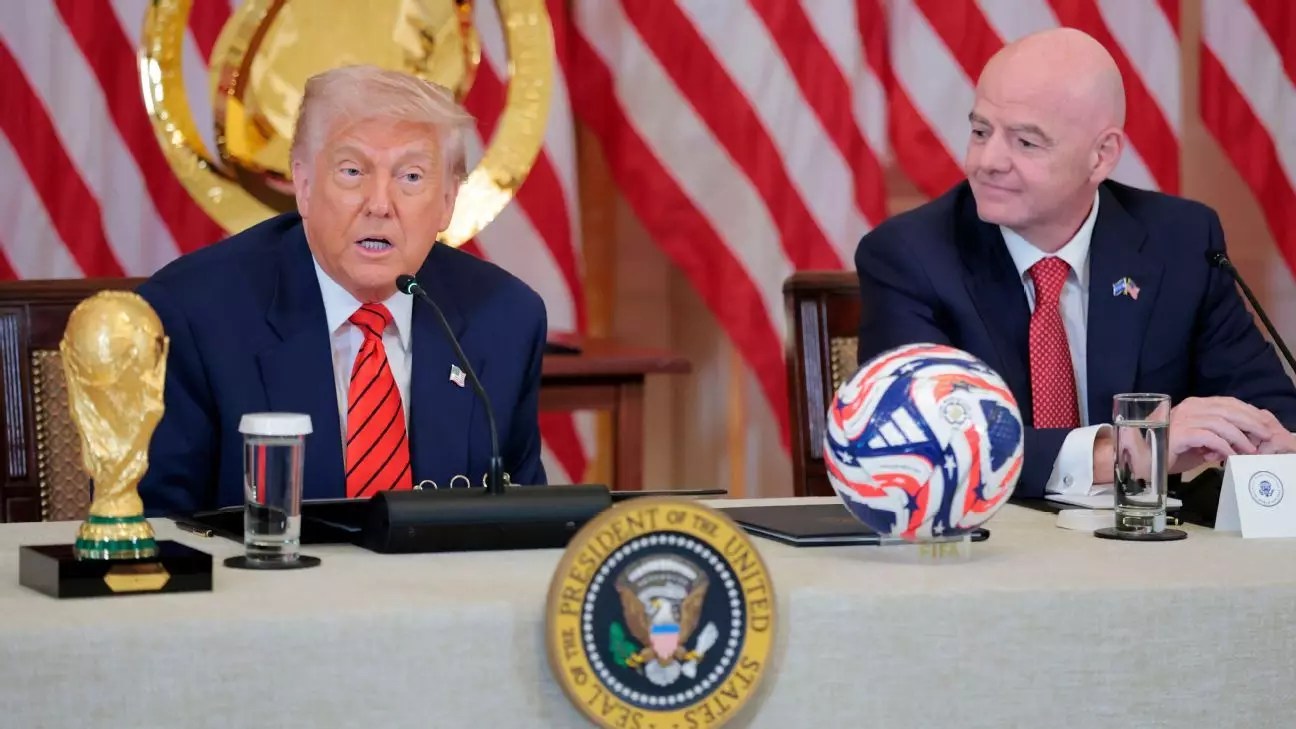In an astonishing statement that intertwines international sports with geopolitical conflicts, President Donald Trump suggested that the upcoming 2026 World Cup could serve as an incentive for Russia to halt its ongoing war with Ukraine. This contention not only highlights the complexities of global diplomacy but also raises questions regarding the morality of linking sports and military conflict. Trump’s comments came during a meeting with FIFA President Gianni Infantino, where the status of Russia’s exclusion from international football competitions was discussed. Essentially, the inference here is that reinstating a nation embroiled in conflict might supercede the fundamental issue of human suffering.
The Current Reality of Exclusion
Since Russia’s invasion of Ukraine in early 2022, the global sports bodies FIFA and UEFA have banned Russian national teams from participating in major football events. This ban reflects a moral stance taken by the international community to condemn aggression and uphold the ideals of sportsmanship. To suggest that the traumatic experiences of thousands of families affected by the war could somehow be commerce in an international competition is remarkably tone-deaf. The dissonance between Trump’s comments and the stark realities of the conflict raises serious ethical implications. Lives are at stake, and framing this tragedy through the lens of a sporting event diminishes the gravity of the situation.
Encouraging False Assumptions
By implying that potential football prospects might spur Russia to negotiate peace, Trump perpetuates a dangerous narrative. It could lead to the misconception that sports can serve as a panacea for complex geopolitical issues. History shows that societal factors and human conditions are far too intricate to be resolved through the lens of sport or entertainment. The suggestion that participation in the World Cup—even if Russia were to compete—would be a viable motivation for peace negotiation detracts from the urgency of finding solutions driven by humanity rather than by the allure of competition.
The Fragile Nature of Global Peace
While Trump articulated a desire to see the violence and tragedy of war cease, the approach he proposes is fraught with contradictions. Peace cannot be bargained for or incentivized through a sporting event, particularly one that is set to take place across three nations. The realities faced by those suffering in Ukraine need to command our attention far more gravely than a conversation about football qualifications. The notion that a mere exclusion from international competitions would serve as a call to action for Russia further obscures the broader implications of conflict resolution, diplomacy, and international relations.
Impacts on Football and Global Unity
The World Cup is more than just a football tournament; it represents teamwork, unity, and the coming together of nations. To intertwine it with a conversation about war only serves to remind us of the fractures that currently exist in our global landscape. The ramifications of Trump’s comments extend beyond the sports arena; they reflect a misunderstanding of the interconnectedness of sports, diplomacy, and human rights. As we anticipate the 2026 World Cup, the focus should be on sportsmanship and national pride devoid of conflict and suffering, making it imperative to tread carefully when discussing such sensitive matters.


Leave a Reply